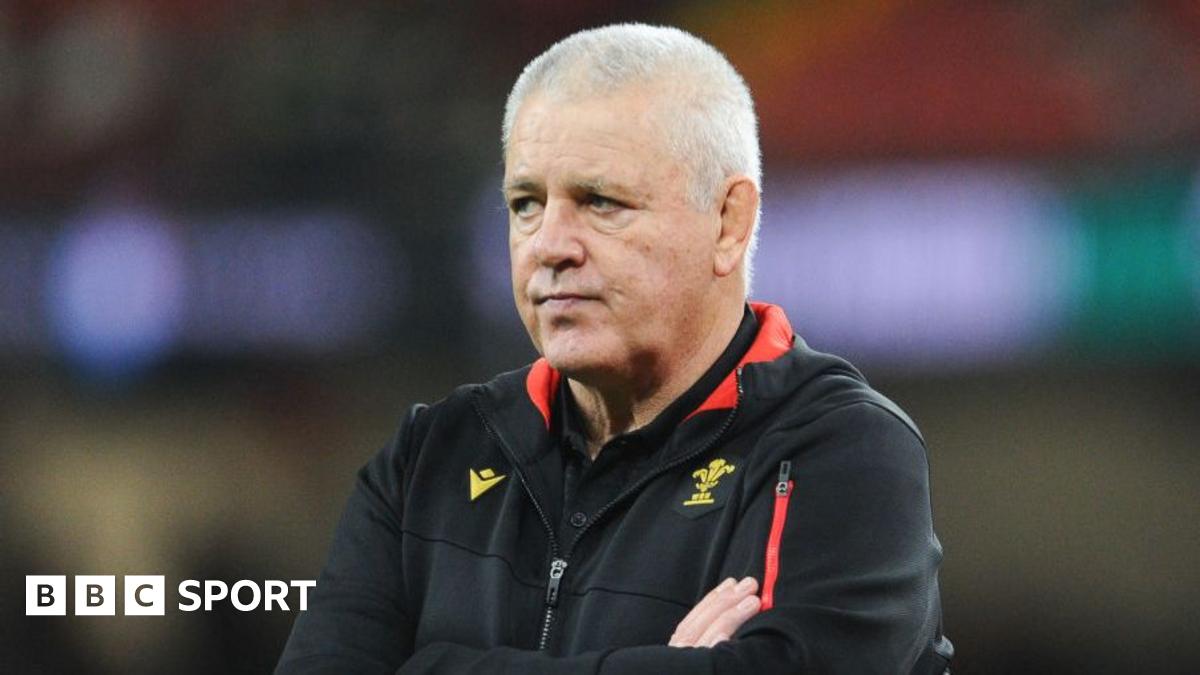ARTICLE AD BOX
Brian Clough was the manager who some at Nottingham Forest were frightened to appoint.
But on 6 January, 1975 - 50 years ago today - a board mindful of the need for "a breath of fresh air" ratified a deal that brought the celebrity manager to the banks of the River Trent.
What they actually got, and what one newspaper prophetically declared in its headline, was a "hurricane" of a personality that would transform a second division side into a European giant within four years.
Martin O'Neill was one of five players at the Reds when Clough arrived who would go on to win promotion to the top flight two years later, claim the English title 12 months after that and the first of back-to-back European Cups in 1979.
"We were lucky, or, as Brian Clough kept saying, we were really lucky to get him," O'Neill told BBC East Midlands Today.
"He would also say that we were a two-bit second division club going nowhere until he arrived. All of those things may or may not be true, but they probably were."
It was only three years earlier and just 16 miles away in Derby that Clough collected his first major trophy in management - guiding the Rams to their maiden English title in 1972.
And while he took Derby to a European Cup semi-final showdown with Juventus - a two-legged tie mired in controversy that the Rams lost, external - a falling out with the board led to his departure in 1973.
He went on to have a stint as manager of Brighton & Hove Albion after that, but he left the then third division strugglers after 32 games for an infamous 44-day reign at Leeds United - where he introduced himself to a squad that had won the English title just months earlier by saying they should throw their medals in the bin.
It showed that Clough could be as caustic as he was charming.
In the decades that have followed, he was seen as the greatest manager England never had -, external interviewing for the job in 1977 and 1982 - and it is widely thought that the Football Association saw Clough as too much of an outspoken figure to hold the job.
Some at Forest were nervous for the same reasons when they went after him as a replacement for Allan Brown - who was sacked following a 2-0 home defeat by city rivals Notts County, which left the Reds 13th in the second tier at the start of 1975.
"Brian Clough was a very controversial figure and a lot of the committee didn't want him to come," said former Forest chairman Brian Appleby during an interview with BBC Sport before he passed away in 2021.
"I think they were frightened of what would happen.
"My attitude was simply that we can't be in any worse position than we are now, and we needed a breath of fresh air. And that's exactly what Brian Clough was."
Nottingham's Football Post newspaper echoed those very words in an article published after Clough oversaw his first win - which was to knock Tottenham out of the FA Cup in a third-round replay at White Hart Lane.
"It was not so much a breath of fresh air that swept the corridors of the City Ground this week - more like a hurricane," the piece stated in its opening line.
"A wind of change has come over the club and within an hour of his arrival, Brian Clough made more impact than most managers achieve in a lifetime."
O'Neill says he remembers first meeting Clough "as clear as daylight" having been sat with team-mates in the changing rooms at the City Ground on the day of the new manager's arrival.
While the former midfielder readily admits that many in that changing room would have been relative unknowns to the new boss, the man himself was among the most famous in Britain.
His personality was known well beyond the terraces, as his wit and panache for entertaining as a talkshow guest made him a media darling whose catalogue of memorable quotes - be it about grass in the sky or shutting up to show more football - remain part of football's lexicon to this day.
"In that time there were very few television stations around, but he was a celebrity," O'Neill said.
"He was appearing on Michael Parkinson's chat show, and I might be exaggerating, but it seemed like every six weeks. He was big news. What he had was this great charisma."
For one 18-year-old Forest fan at the time, Clough's January arrival was greeted as a "late Christmas present".
William Heath is a lifelong Reds supporter who is now 68 and lives and works in Mijas, on the southern coast of Spain, where he makes up part of the self-styled and unofficial Calahonda Forest Supporters Club.
When Clough started at Forest, Heath was an apprentice electrician in Nottingham trying to forge a career during the 'three-day working week' - a measure brought in by the government of the time to try to conserve dwindling fuel supplies in the country.
"The year before Clough joined Forest was pretty bleak," Heath told BBC Sport.
"There were miners' strikes, the country was in a three-day week and with me being a second-year apprentice, I wondered if there was any future in my job.
"It was a pretty dull year as far as looking at your future was concerned."
While at Leeds, Clough only seemed to add to that gloom as he managed to sign Forest striker Duncan McKenzie - who was seen as one of the few bright sparks of the 1973-74 season after scoring 26 goals.
"Clough, having taken our best player to Leeds, was not my favourite person in the world at that time," Heath recalled.
"But it was like a late Christmas present. I even remember getting a diary for Christmas and thinking I will never write in this, and the first thing I did write was on the 6th of January that Brian Clough is the new manager of Nottingham Forest with extremely high expectations of what was going to happen."
O'Neill, whose first season with Forest ended with relegation from the top flight in 1972, recalls the same sense of anticipation within the dressing room.
"We felt that something was going to happen when he arrived at the football club," said O'Neill, a man who would go on to manage Leicester City, Celtic, Aston Villa, Sunderland and the Republic of Ireland before a brief spell as Forest boss in 2019.
"He arrived on a dark and dismal morning way back in January 1975, and for a number of players in the dressing room - younger players like myself, Tony Woodcock, Viv Anderson, John Robertson and Ian Bowyer - he changed our lives, absolutely."
What Clough did in the next 18 years at the helm was help Forest collect nine of the 11 major titles the club has to its name.
Two European Cups - now known as the Champions League - a European Super Cup, the English First Division crown, a Charity Shield and four League Cups were picked up in his time.
In the 110 years from when Forest was first founded to Clough's arrival, the club had twice won the FA Cup – a trophy the man himself never won - and in the 32 years since he left the City Ground, the only piece of silverware collected by the Reds has been a second division title.
When Forest won the Championship play-off final against Huddersfield at Wembley in 2022 to return to the Premier League after a 23-year absence, it was the club's first appearance at the national stadium since Clough last took them there for a League Cup final three decades earlier.
Even now, with Forest flying high in the Premier League after battling to avoid relegation in previous seasons, the team's exploits are constantly compared to those of the Clough era.
"He changed the football club," said O'Neill.
"And when Peter Taylor [assistant manager] arrived, he gave him a new energy - there is no question about that. The two of them together were absolutely dynamite.
"He [Clough] just ruled it, his personality was all over the City Ground and he deserved all the credit in the world because of what he had done."

 1 week ago
4
1 week ago
4








 English (US) ·
English (US) ·